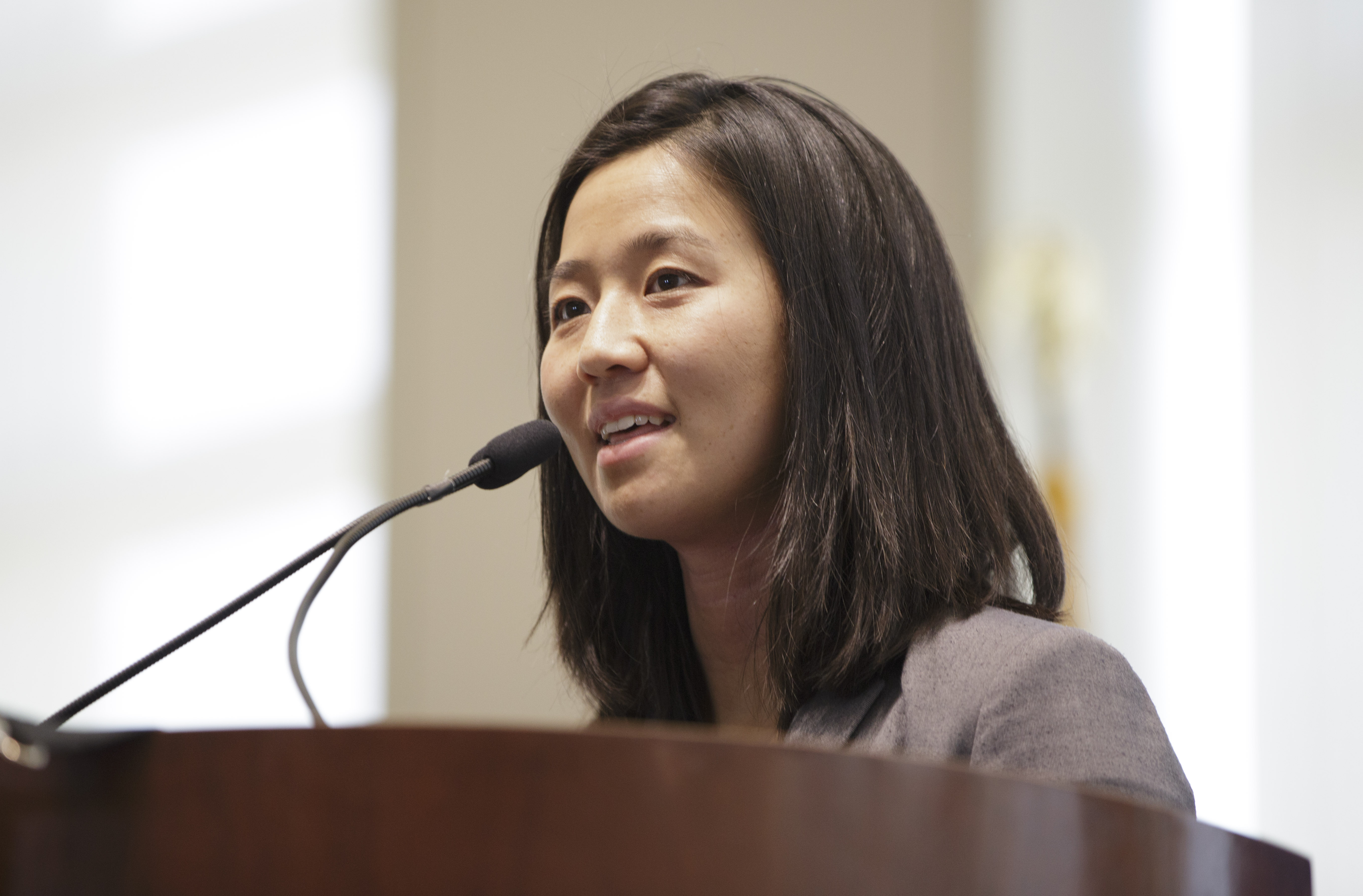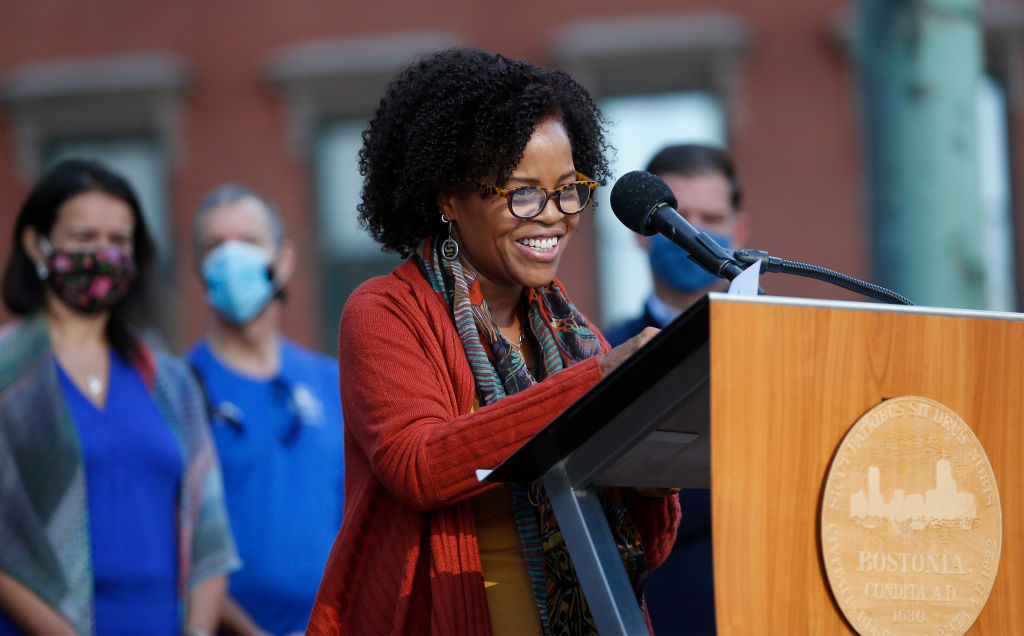With his stint as Boston mayor potentially coming to a close in the coming weeks, Marty Walsh warned of "concerning" coronavirus numbers as the city works to vaccinate people and bring students back to the classroom.
Students in Boston Public Schools will be able to chose whether or not to return to in-person learning in waves between February and March, Superintendent Brenda Cassellius announced Thursday.
"Our plan has always prioritized parent choice. That's why parents can opt in or opt out of the hybrid model," Cassellius said. "That means any student can have the option to learn remotely, if they'd like to, five days a week."
In-person learning will resume for the next wave of Boston Public Schools students on Feb. 1, the district and its teachers union said Monday. Currently, approximately 1,900 students are learning in-person at 32 of Boston's schools.
About 4,900 additional students with "high in-person priority needs," will be able to return to school buildings on Feb. 1, Cassellius said Thursday. Some students with high in-person priority will learn in-person for four days a week while others will choose to still be in-person for two days a week.
One month later, the district plans to bring back the remainder of its students every two weeks, beginning with its youngest learners during the first week of March. Starting March 1, all students pre-K to grade three will have the option of returning, followed by students in grades four through eight during the week of March 15 and, finally, high school students during the week of March 29.
Get top local stories in Boston delivered to you every morning. Sign up for NBC Boston's News Headlines newsletter.
The new timeline is still tentative -- each phase could be pushed back a week or two if needed based on public health data.
Cassellius said the district is implementing health and safety protocols including a limited number of students and faculty in a building, providing air purifiers or HVAC filters for schools, increasing air quality testing and reporting, delivering additional personal protective equipment and offering access to free COVID-19 testing for teachers.
Meanwhile, the city continues to vaccinate people who have been prioritized by the state, including those who live in congregate settings and health care workers.
As of Wednesday, Boston vaccinated over 1,100 first responders, firefighters, police officers and EMTs, according to Marty Martinez, chief of the Boston Health and Human Services office. More are scheduled for Thursday, Friday and all through next week, Martinez said.
"We'll continue to partner with the state in this first phase and as we continue to plan for the second phase, which includes seniors living in affordable housing and living in subsidized housing," Martinez said, noting that the next phase includes vaccinating K-12 educators.
Next week, Boston will begin vaccinating people in homeless shelters, family shelters and other group settings in partnership with Boston Healthcare for the Homeless. The city is also partnering with community-based organizations to continue to raise awareness about the vaccine, its safety and how it was studied.
"Not surprisingly, and I know folks know this, but we continue to see hesitation in our diverse communities and our Black and Brown communities here in Boston to get vaccinated," Martinez said.
Walsh said the coronavirus case numbers are "concerning," and the hospital numbers are "higher than we'd like," as about 98% of adults in the non-surge ICU beds are occupied.
"It's the highest we've seen in quite some time - since almost the beginning of the beginning of the first surge," Walsh said. "Everyone should be thinking about the simple steps they can take on a daily basis to avoid the spread of COVID-19. Every time you wear a mask, every time you wash your hands, avoid a gathering, you could be saving a life. Businesses and employers, every time you enforce safety protocols to let people work from home, you could be saving a life as well."
On Wednesday, Boston reported 352 confirmed cases, bringing the total cases in Boston since the beginning of the pandemic to 46,558. Seven people lost their life to COVID-19, bringing the city's death toll to 1,067. The city's community positivity rate is currently at 8.7%.
Walsh noted that the city is in "constant contact," with the hospitals and hospital presidents. At this juncture, there is "no need" to reopen Boston Hope, Walsh said.
The update comes after Walsh delivered what may have been his last State of the City address Tuesday, as he prepares for a new post as President-elect Joe Biden's labor secretary. He declined to take questions Thursday.
"I want to say thank you to all for the well- wishes and kind words I received over the past week. As I said Tuesday night, the city is not just my hometown, it is my heart," Walsh said Thursday. "The work continues. We certainly have better days ahead, and we're going to continue to stay very vigilant, to make sure that we beat this virus this virus will not be this will not be city will not be this Commonwealth will not be this country."
Boston is preparing for the inauguration next week, according to Martinez.
"The mayor wanted me to share with you that we continue to monitor the events in the Capitol," Martinez said. "We continue to be prepared for any challenges we may see here, based on the threats that have been happening."
There are "no credible threats" in the city of Boston right now, Martinez said, but the Boston Police Department is working with federal authorities to be prepared for any "challenges."
"We will continue to monitor that situation," Martinez said.
Walsh, 53, has been Boston's mayor since 2014. He's a former state lawmaker with a long history with organized labor. Walsh is a former head of the Boston Building Trades, a union umbrella organization.
His move to the U.S. Labor Department sets the stage for what could be a wide-open mayoral race. He said the transition to Boston City Council President Kim Janey, who would take over as acting mayor if Walsh is confirmed by the Senate, has already begun.
City councilors Michelle Wu and Andrea Campbell have already thrown their names into the race. Sen. Elizabeth Warren has expressed her support for Wu.
On Monday, Boston Police Commissioner William Gross said he was considering running for mayor of the city as well, but hadn't decided yet. According to The Boston Globe, Gross' decision to run would factor into whether others, including City Councilor Michael Flaherty, may also choose to run.
More Coverage on the Race for Mayor of Boston
With Boston Mayor Marty Walsh off to Washington, D.C. to join President-elect Joe Biden's cabinet as Labor Secretary, speculation has begun on who will run to replace him in office later this year.



